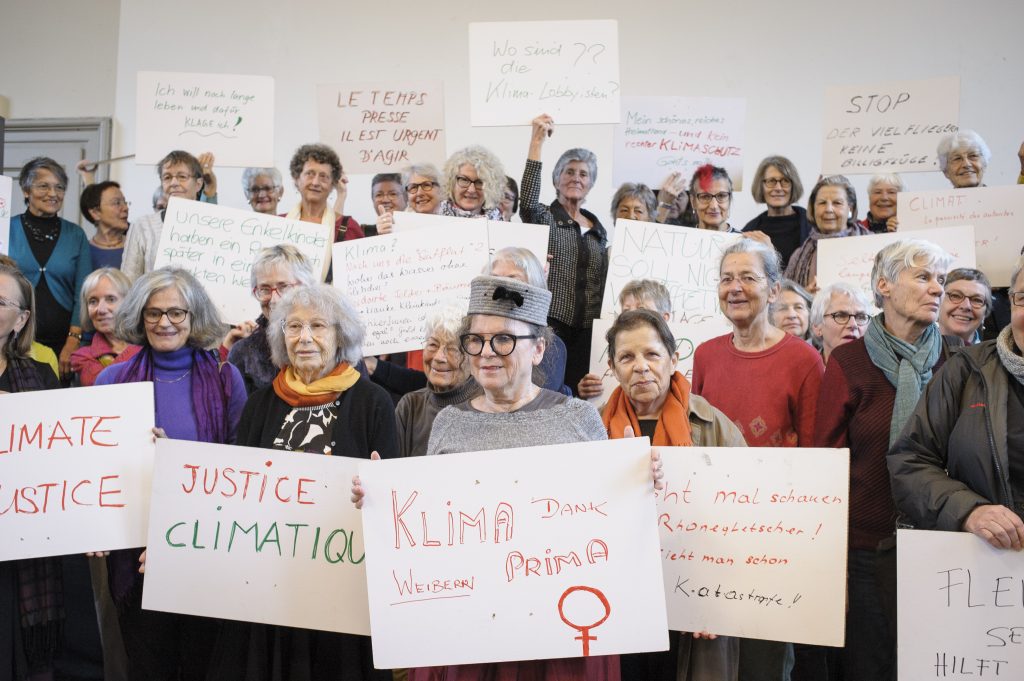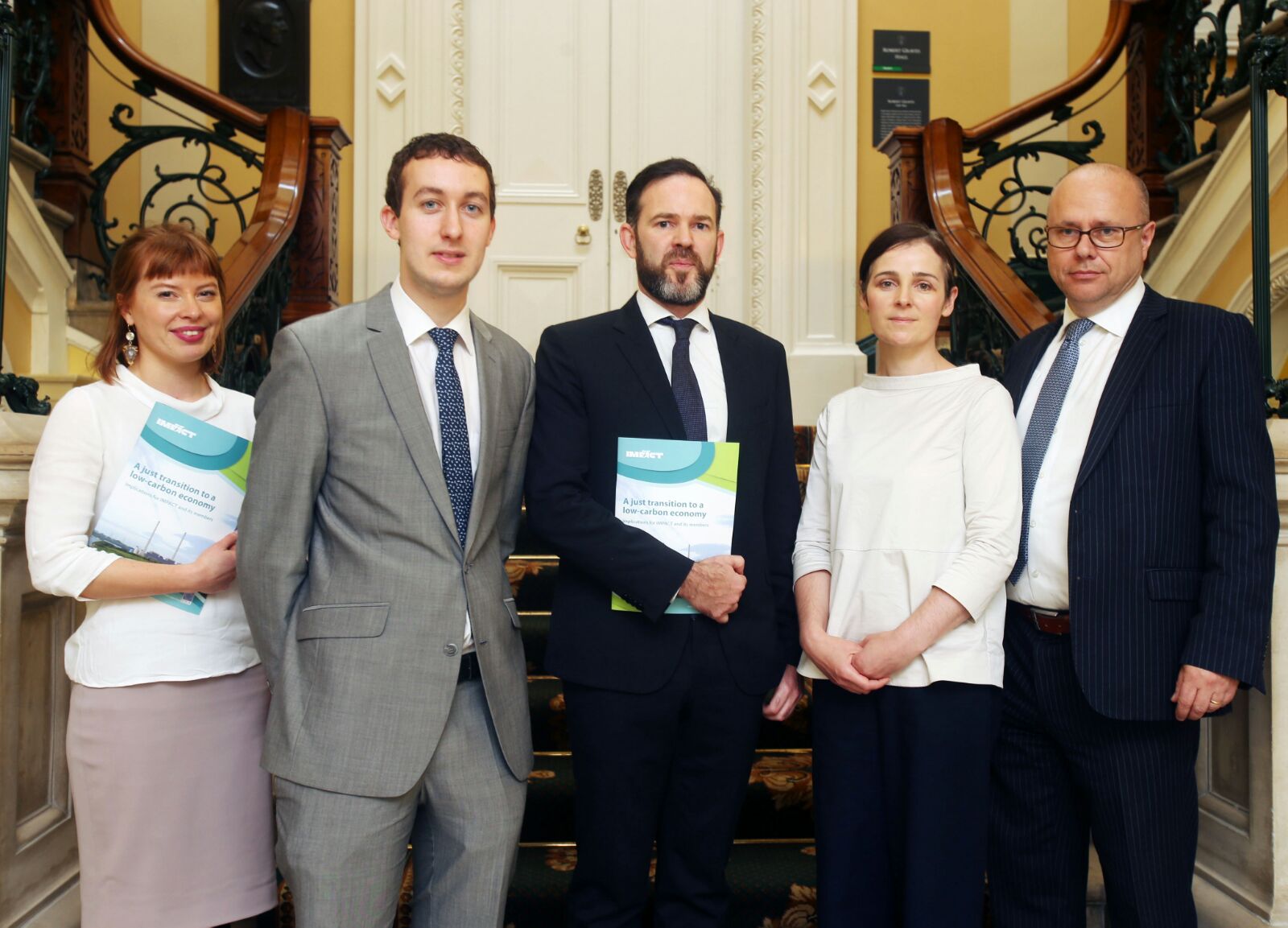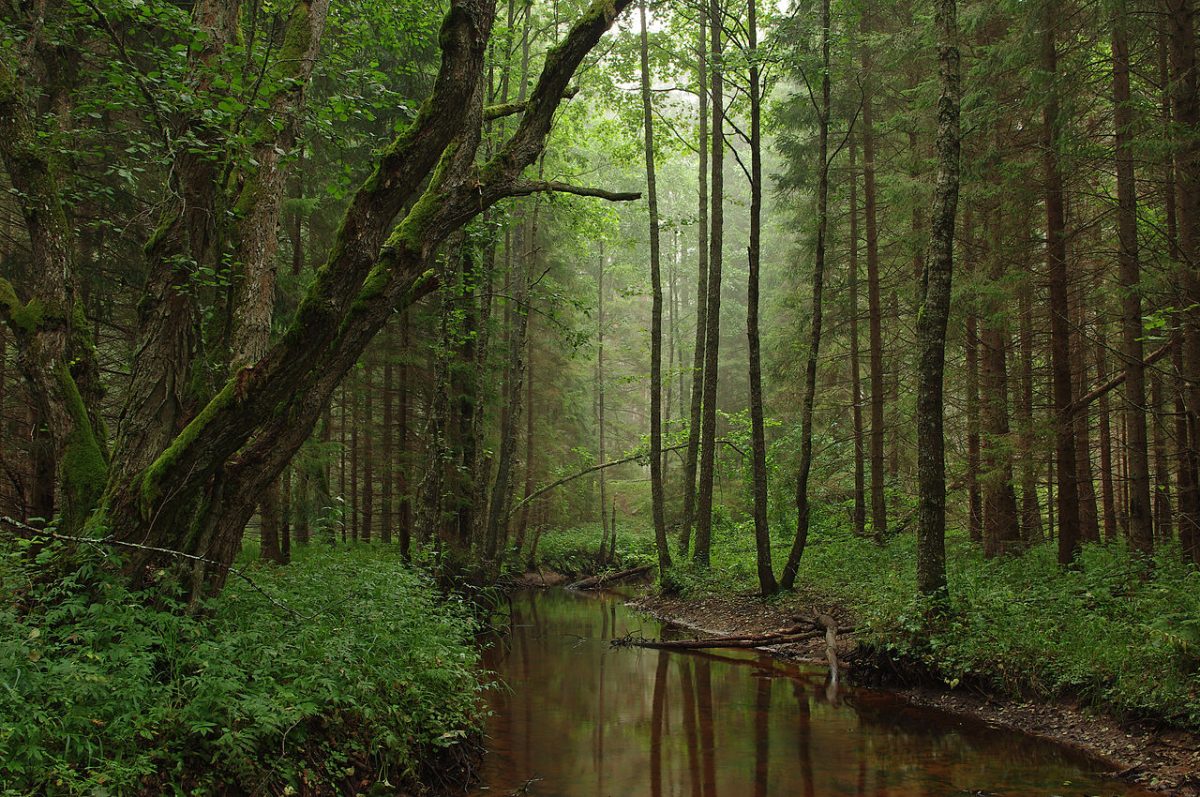The Climate Cases: Age is no Restriction

January 29th, 2017
After the success of the Urgenda climate case discussed in the first of our Climate Cases series, a number of citizens’ groups and NGOs stood up across the world and took the brave move of taking their governments to court over climate inaction.
With many climate movements across the world led by young students and millennial activists, it was an unlikely group that faced up to the government in Switzerland: Generation Grandma.
During the summer of 2003, an extreme heat wave tormented Europe. As a result, more than 70,000 people died from dehydration or other heat-induced health issues. Many of the victims were senior citizens.
The frequency and intensity of such heat waves are predicted to increase as a result of climate change, with the WHO stating that climate change poses a serious threat to older people, in particular, the “most vulnerable group” – elderly women.
It is no wonder then that KlimaSeniorinnen decided to try and make their government commit to taking climate action.
The group (in English, the Elderly Women for the Climate) was founded in 2016 to represent elderly Swiss women to protect their right to live in a healthy environment.
According to the group’s Co-President, Rosmarie Wydler-Wälti, who has been active in nature conservation since the 1970s, the group was “inspired” by the successful Urgenda case in the Netherlands.
Ms Wydler-Wälti told The Green News that the small band of “dedicated elderly women” quickly gained the support of Greenpeace and found lawyers to support their idea of taking the Swiss government to court.
Swiss climate policy
Similar to the Netherlands prior to the Urgenda case, the Swiss government only set their 2020 goal for emissions reduction at 20 per cent below 1990 levels.
The United Nations Framework Convention on Climate Change and the Paris Agreement, however, call for much more ambitious targets in order to keep climate change in check.
So, in November 2016, with no ambitious climate policy in the pipeline, the KlimaSeniorinnen, counting just 539 members, authorities’ made a legal request to the Swiss authorities for it to “stop omissions in climate protection”.
Their complaint: That the Swiss climate goals were insufficient to protect elderly citizens and that measures taken up to that point were not good enough to battle climate change. The seniors called for the government to adjust their policies and adopt new measures to reach more ambitious climate targets.
The decision did not go down well with some in the Swiss media and public according to Ms Wydler-Wälti, as the group began receiving letters alleging they were egotistic to base this case on the climate impact on elderly citizens.
“Of course we also care about future generations and the planet … but it makes sense that we sued as elderly women, scientifically proven to be the most vulnerable group”, says Ms Wydler-Wälti. “We had a chance to win, and if we won it would benefit everybody.”

The group outside of the Federal Administrative Court of Switzerland Photo: KlimaSeniorinnen
The Swiss Ruling
On 26 April 2017, the Swiss authorities decided not to consider KlimaSeniorinnen’s legal request, finding that the constitutional rights to health and life were not breached by the Swiss Government. The administration decided that the Swiss government was doing enough to tackle climate change and that the elders were not threatened by the State’s actions.
In a response issued by the Federal Department of the Environment, Transport, Energy, and Communications, the authorities argued that the climate policies after 2020 were ambitious and that the goal of a 50 per cent reduction in emissions by 2030 and a 70 to 85 per cent reduction by 2050 was sufficient.
However, for KlimaSeniorinnen, the decision did not properly take into account the dangers of climate change on elderly women. So, in May 2017, the group filed a legal case to the Federal Administrative Court of Switzerland, arguing that the authorities did not evaluate the facts properly and should reassess the case. A decision is expected to take place later this year.
But even if their legal complaint is unsuccessful, Ms Wydler-Wälti says that the group – now counting nearly 1,000 members – will not give up. If necessary, she added, “we will go to Strasbourg” and bring the case to the European Court of Human Rights.
International Attention
KlimaSeniorinnen is confident that their appeal will gain more support from the Swiss people as the country begins to feel the consequences of climate change.
“The glaciers, which are part of the Swiss identity, are melting”, says Ms Wydler-Wälti. “Even the most conservative Swiss people now realise that this problem affects us all”.
The group has also received significant attention from outside of Switzerland. Together with representatives of climate cases from Norway, the Philippines, and the USA, KlimaSeniorinnen were welcomed aboard Greenpeace’s Arctic Sunrise ship last year to exchange their experiences.
For Ms Wydler-Wälti it is important to “support and encourage one another” in this way. We have to “think of the future and our grandchildren,” with climate cases “the last possibility we have left to really make a difference,” she concluded.
[x_author title=”About the Author”]








